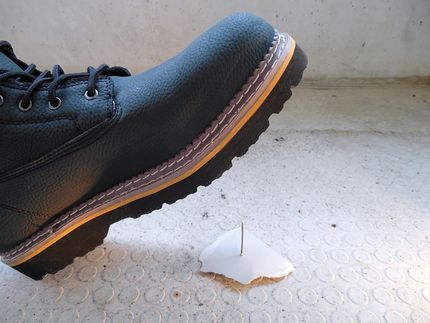New survey finds chronic pain treatments are failing sufferers across Europe
Advertisement
Boston Scientific Corporation released results of a survey of more than 1,000 chronic pain sufferers across Europe that suggest millions of patients there continue to suffer on a daily basis even after trying several treatment options. “The Painful Truth Survey: The State of Pain Management in Europe,” sponsored by Boston Scientific and supported by third party groups, including Action on Pain UK, the Spanish Pain Association (EFHRE Sine Dolore) and the German Pain League (Deutsche Schmerzliga), found that more than a third of sufferers still struggle with routine daily tasks affecting their work and personal lives, their relationships and the ability to care for their children. The organizations involved with the Painful Truth Survey call for governments in all European countries to develop national plans for chronic pain management that go beyond the traditional diagnosis and treatment routes.
Chronic pain sufferers and healthcare professionals do not always have the necessary information and understanding of available treatments options. The results show one fifth of those surveyed have a chronic pain diagnosis that may be treated or managed with innovative treatment options such as rechargeable Spinal Cord Stimulation (SCS). However, despite availability across Europe, two thirds of sufferers have never heard of the treatment.
“Many patients see their doctor several times before they are referred on to a specialist and this can be very frustrating for someone who is living with constant pain on a day to day basis,” said Harry Kletzko, vice president of the German Pain League. “Pain really impacts how you live your life, even with simple tasks such as getting out of bed, which can become extremely difficult. Because chronic pain is so hard to describe, it’s hard for someone who is not experiencing it to actually understand where the pain is and how it affects patients.”
In Europe, chronic pain is one of the most common conditions for which people seek medical attention. About a third of sufferers indicate their chronic pain has lowered their household income by about 31 percent (averaging €5,000 annually) and the condition itself costs the European healthcare system as much as €300 billion a year. An estimated 90 percent of this can be attributed to indirect costs such as lost productivity, social security and welfare payments.
“For many patients, conventional medication or surgery is not the answer and we need to be exploring how best to use innovative and cost-effective technologies as they emerge,” said Dr. Simon Thomson, Consultant in Pain Medicine and Neuromodulation at Basildon and Thurrock University Hospitals NHS Foundation Trust, United Kingdom. “In the longer term, SCS may not only improve the sufferer’s pain, but also reduce the burden on the health economy by getting the right treatment to the right individual at the right time.”
Treatment options such as rechargeable SCS may help some patients manage their chronic pain, possibly reducing the need for daily medicinal therapy, and relieve subsequent pressure on healthcare systems. Studies have shown that the cost of treating patients with SCS are recuperated in one to three years in comparison to conventional therapies, due to a reduction in healthcare resources such as drug therapy and repeat hospitalizations.
Along with urging governments across Europe to take action and address issues involving pain, survey organizers also call for better access to innovative treatment options that may not only benefit patients, but may also benefit health economies through demonstrated cost effectiveness.
























































